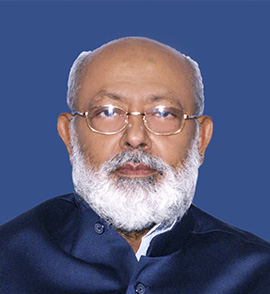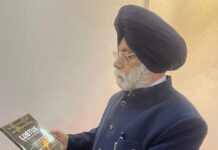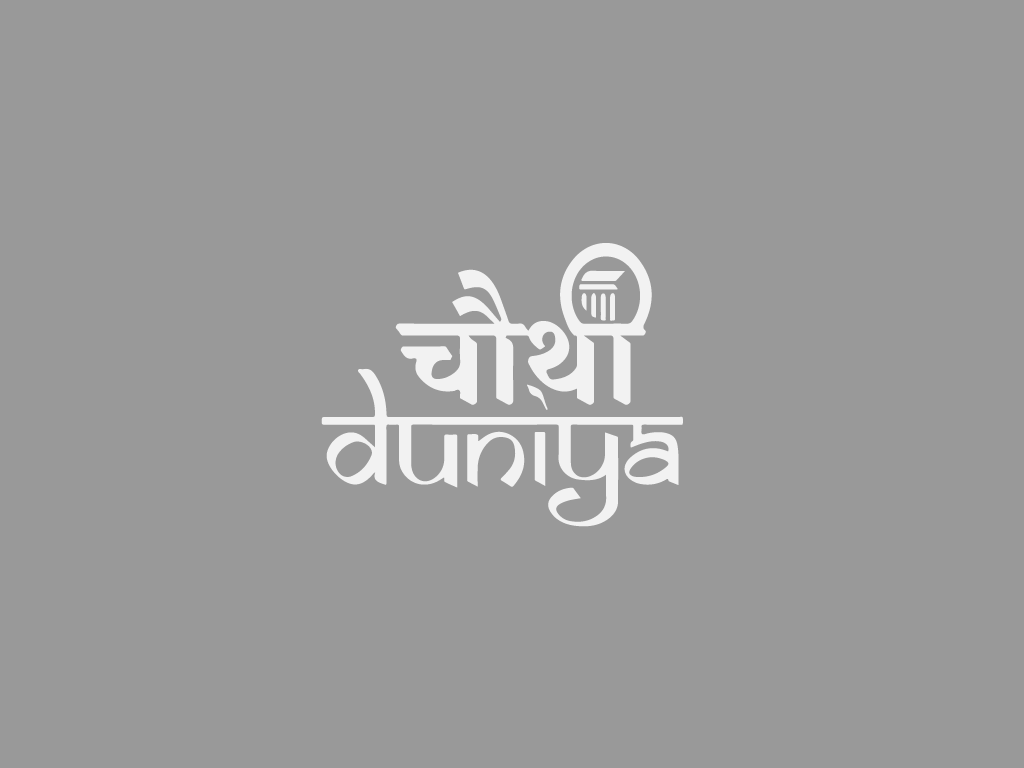
Knowledge is essential for the betterment of humanity, human development, convenience and facilities. ‘Education a top priority in Islam’
Education is a fundamental right of humans. Education is a basic need of all humans, be they wealthy or pauper, man or woman, Arab or non-Arab, American or African, fair or dark. Education draws the line of distinction between man and animal. Education is a symbol of culture and civilisation. Education guarantees human development and success. Knowledge is instrumental in bringing greatness and honour to humans. Knowledge is much sought after in all revealed Books, religious scriptures and world communities. Knowledge is essential for the betterment of humanity, human development, convenience and facilities.
Moreover, education is a top priority in Islam. It is well-known that the first revelation of the Holy Qur’an insists on knowledge with the command to read. Knowledge is adjudged essential and indispensable at numerous places in the Traditions of the Prophet (Sallallahu ‘alaihi wa Sallam). We get to know from the Holy Prophet’s (Sallallahu ‘alaihi wa Sallam) life how much value he attached to knowledge. As a statesman and guide of his people the Holy Prophet (Sallallahu ‘alaihi wa Sallam) considered it his obligation to well equip his community with education and achieved success in educating his people by adopting several means of instruction.
He assumed the role of a teacher and gave instructions to his close companions. He also engaged other competent persons to impart education to his companions. The educated among the prisoners of the battle of Badr were offered the option to teach, in lieu of ransom, the unlettered among the faithful to secure their freedom. We infer from the example set by the Prophet of Islam (Sallallahu ‘alaihi wa Sallam) that in every period leaders, those in authority and leading figures in a society, are under obligation to equip people on their watch with education relevant for their time. Further, they are duty-bound to make arrangements to provide education. It is the responsibility of the state and prominent members engaged in social welfare to equip their people with good education. Hurdles in this task should be removed and ideas translated into action.
In India the main cause of backward status of Muslims is a consequence of ignorance, illiteracy and decline in learning. Post independence Indian Muslims have suffered not only in political, social and economic arena, they also lag behind others in education because as a community of the faithful we have not paid adequate attention to organising and promoting education among Muslim masses. It has not been on our agenda to educate our children and establish good educational institutions for this objective. This negligence has reduced us to backwardness in every sphere of activity. It should therefore not surprise us that in important positions in government, business and in other important sectors our representation is only two percent while we represent 14 percent of the population of the country. This state of decadence is mainly due to lack of education and illiteracy. In higher education we cut a sorry figure. The main reason for this pitiable situation is that we have not included education in our primary agenda; our mission is bereft of academic vision. According to the Sachar Commission Report, the ratio of primary education among Muslims is only 60% while the ratio of high school is reduced to only 17%. The figures related to higher education is just 4%, very low by all criteria and deserves serious attention and sincere efforts for improvement. This educational decline is because we didn’t pay adequate attention to education and failed miserably to recognise the relevance and significance of education while it is a fundamental duty and the first command of the Holy Qur’an directing the Muslims to read.
From learning what has befallen the community, now the time has arrived to a well-formulated plan and modus operandi in the light of Islamic teachings, the Noble Qur’an and the Traditions of the Holy Prophet (Sallallahu ‘alaihi wa Sallam) in order to educate our young generation. We shall endeavour to achieve the target of 100% education among our children and youth. If the target is achieved successfully, young Muslims will be able to move up the career ladder. Good education will enable our youth to find a respectable place in courts of justice, bureaucracy, media, technology, science, management and in all other areas of work. We should undertake the mission of establishing a large number of schools, colleges and universities and research centres across the country.
Masjid should be used as a platform for imparting education. Maktab and Madrassah education should be reorganised and strengthened to meet the needs of contemporary society. Institutions should be established on the ITI pattern to offer professional education. Every institution should be turned into a dynamic and purposeful instrument of change. Everything should be used to serve education. With promotion of education as the main target, it may be imparted under the shadow of a tree, or even private houses may be used to run educational programmes. Take ‘spread education, save humanity’ as a mission. Follow it with sincerity and seriousness. Start working in this direction with strong determination that we will achieve the target of 100% literacy before the first half of the 21st century.
I firmly believe that with the help of Almighty Allah we will be able to achieve this target in the next thirty years. Concerning education there are a few matters which are of central importance, of which technology has over the years emerged as the most important dimension. It is widely recognised that technology and science are the biggest achievements of humanity in the 21st century. Expertise in science and technology is the foremost need of the modern age. Experts in technology have in their grip the entire world. Let’s resolve to equip our children with ever advancing science and technology. We have to move ahead and transform the skills of our youth into expertise in their respective areas.
Our next target should be to find ways to attain executive positions to have a share in the decision-making process. Muslims must focus on UPSC, SCSC, Judicial Services and other competitive services examinations. We should take initiative in helping UPSC aspirants across the country to undergo intensive preparations, removing all hurdles in their journey to highest career positions. Those who are resourceful in our community should assume the role of their mentors to groom and guide them so that they pass out with best results in UPSC and state civil services examinations and get into high-profile positions. Law education has assumed great importance these days. India’s democracy is enshrined in our Constitution.
The Constitution guarantees equality to all, conferring equal rights on all citizens. We have a strong judicial system in place throughout the country. Therefore, it is required of us that we know our Constitution and laws promulgated from time to time as also the International Law since now we have become part of a globalised world. Producing more and more legal studies should be on our priority list and this will be possible only when we introduce our youth, both male and female, to law education, so that they become members of judiciary or join legal practice. This places law education on the front burner. Association with media and journalism is also a vital need of our time. Means of communication have a stronghold over the entire world. Intellectual inroads and social and cultural invasions are making their way in our society through media. In this context we need to work out a judicious plan to protect our values and therefore the Muslim youth should be encouraged to pursue media studies. Workshops should be organised with this objective in mind. Muslim youth should be motivated to learn media strategies since this medium has assumed enormous power in our time. In this area too our presence is minimal. Therefore, media studies and media career deserve greater attention.
Islamic heritage should be an integral part of our educational movement. We should introduce Islamic heritage in a modern framework. We should acquaint the world with Islamic civilisation, Islamic culture and Islamic rules of decency and courtesy. We should tell the world what constitutes Islamic legacy. Besides technical and law education, media studies and Islamic heritage, we shall have to focus on economy too. To address the above-mentioned tasks we shall have to tap financial resources, which is not possible without putting economy in a good shape and improving our economic condition. It should not astonish us that the economic condition of Indian Muslims is weak. Therefore, it should be our goal to develop strategies for organising economy and improving economic conditions of Indian Muslims. After having discussed the weak economic state of Indian Muslims, the Sachar Committee Report recommended that entrepreneurship should be developed for Muslims, who rarely own big companies, and starting one is not easy. However, in the changing circumstances Muslims may go for small businesses and this proposition should be considered by those who can help their brethren to undertake such an initiative. Meanwhile, those who are financially well off and resourceful should come forward to support the children of the Muslim community.
To conclude, we should put the promotion of education on our special agenda. We are dismayed at the negligence of education. It is high time we start spreading education and working in different areas of utmost importance. Remember, in India the only solution to our problems lies in education, so we should certainly not disregard it. Therefore, focus on education – primary, high school and college/university – and all other tasks set above should be the centre of our attention. We should keep in mind our objective that education aims at human development, end of oppression and liberation of the oppressed. Our mission and target are: ‘Spread Education, Save Humanity’.















